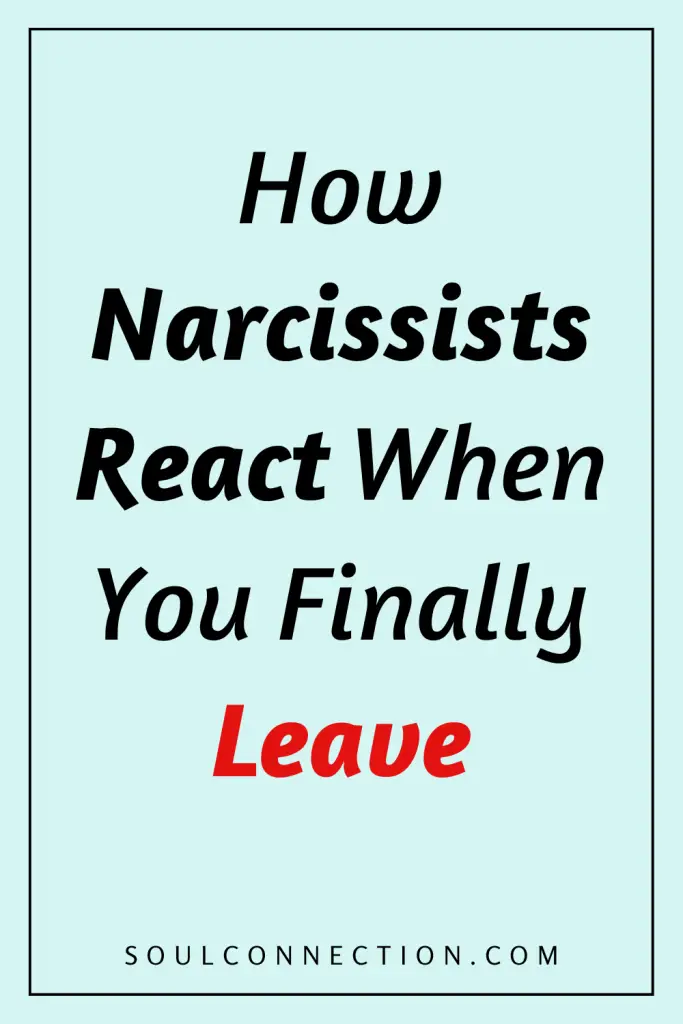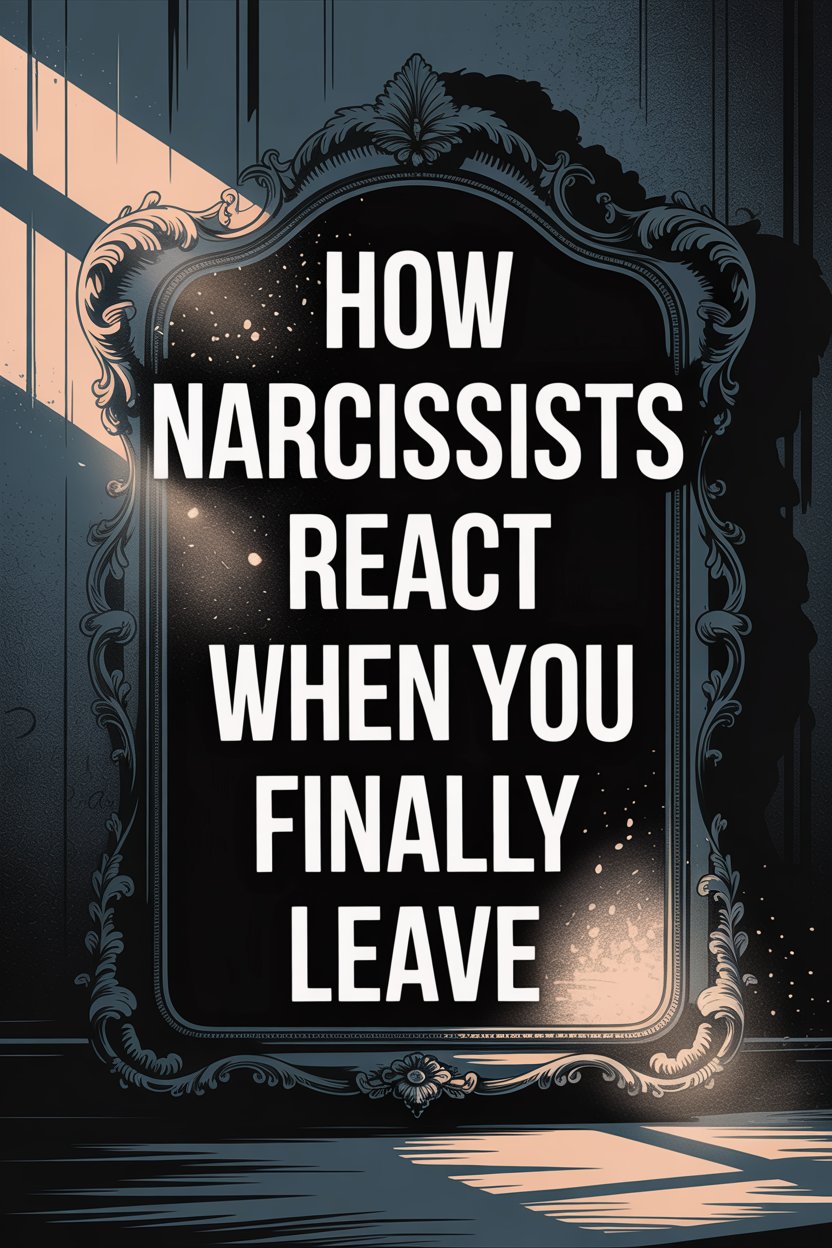Packing up your self-respect and walking out the door from a relationship ruled by narcissism is no small feat. The question that lingers, usually with a cocktail of dread and hope, is: How will the narcissist react when you’re finally gone?
Spoiler: It’s rarely with a Hallmark card or a heartfelt thank you note.
Let’s wade into the messy, occasionally baffling, and sometimes darkly comedic aftermath of leaving a narcissist.
Shock and Denial Make a Grand Entrance
Narcissists are always the main character in their own soap opera, and in their script, you don’t get to leave. At first, the news barely computes.
There’s confusion (“How could you even think of leaving someone as dazzling as me?”) and flat-out denial (“You’ll be back once you realize how amazing I am!”).
This stage is heavy on the disbelief and light on the self-reflection.
There might be dramatic texts, frantic late-night calls, or even a sudden interest in your social media—anything to convince themselves (and you) that this breakup is all a misunderstanding.
Prepare yourself for the classic, “You’re just overreacting,” or, “You can’t survive without me.” Sweet talk, guilt trips, a few jabs at your sanity—narcissists deploy the whole arsenal.
This isn’t negotiation. It’s an attempt to erase reality with sheer willpower.
The Hoover Maneuver
Anyone who’s left a narcissist knows about “hoovering”—named, with loving sarcasm, after the vacuum cleaner company. Hoovering is all about sucking you back in.
Expect love-bombing reminiscent of your early days: sappy messages, grand promises, even public declarations that would make a Hollywood romcom blush.
They might show up at your door with flowers, or at your work with a gift “just to talk.”
Beneath the charm offensive is panic. The narcissist’s self-worth is at risk, and they’ll say just about anything to keep you in orbit.
“I’ve changed.” “I can’t live without you.” “No one will ever love you like I do.” (On that last count, one can only hope.)
Rage, Blame, and the Victim Olympics
When charm fizzles out, cue the fireworks. Narcissistic rage isn’t just anger—it’s a performance. Prepare for accusations, character assassinations, and spectacular meltdowns.
Your phone might light up with venom, or your reputation could suddenly become the hottest topic among mutual friends.
Expect a star turn in the Victim Olympics. Now you’re the villain in their story—cold, ungrateful, possibly even unstable. Watch as the narcissist recasts themselves as the tragic hero wronged by your callousness.
This isn’t about closure. It’s about control. If they can’t win you back, they’ll try to win the crowd.
The Silent Treatment
After the storm comes a chilling calm. The narcissist might freeze you out, block you, or act as if you never existed. For many, this is the toughest part: the abrupt, icy silence where even the fighting is gone.
Silent treatment is a power play. If they won’t have your adoration, they’ll have your confusion.
The goal? Make you squirm, regret, and maybe—even now—come crawling back.
There’s a twisted hope behind the silence: that absence will make your heart grow desperate. In reality, it’s often the first taste of peace you’ve had in ages.
The Smear Campaign
Next up: damage control. If they can’t have you, they’ll make sure no one else wants you—at least, not in their circle. Enter the smear campaign.
Stories spread. Details get twisted. Suddenly, you’re the unstable, unreasonable, selfish one. Mutual friends get an earful; family might get dragged in.
Social media is weaponized, and your inbox might fill with “concerned” messages from people you haven’t heard from in years.
It’s petty, exhausting, and infuriating—but also textbook. Narcissists would rather torch your reputation than look inward.
Triangulation and New Supply
Narcissists collect people for validation like kids collect trading cards. If you’re out, someone else is in—sometimes before the ink on your goodbye note is dry.
Expect an unusually public flirtation or a new relationship that’s paraded across social media. The subtext is obvious: “Look how quickly I moved on!
Jealous yet?” This is designed to provoke a reaction, preferably one that makes you second-guess your decision.
Triangulation crops up too: your ex might compare you to their new flame (loudly and unfavorably), or dangle a friendship with your old nemesis. It’s all part of the same script.
Attempts at Friendship (Spoiler: It’s a Trap)
Suddenly, your ex wants to be “friends.” They might insist you’re the only person who really understands them, or that you’re “too important to lose.” Cue the guilt.
Don’t be fooled by the friendly façade. The goal isn’t healing or closure—it’s access.
A narcissist who’s being nice is usually plotting a comeback or, at the very least, wants to keep tabs on you. Healthy boundaries will not be on the agenda.
Legal and Financial Games
For those with deeper ties—a shared lease, kids, or a messy mortgage—things can get especially spicy. Narcissists treat breakups like a chess game, with your sanity as the prize.
Expect delays, last-minute changes, and endless negotiations. Documents go missing, appointments rescheduled, and agreements “forgotten.”
These games are meant to exhaust you into submission. Holding firm, getting everything in writing, and bringing in professional help is how you keep from being steamrolled.
Emotional Whiplash
One day, you’re the love of their life. The next, you’re a pariah. Then, out of nowhere, you get a 2 a.m. text: “Miss you.”
This emotional ping-pong isn’t about you. It’s about their need for control and attention.
Staying focused on your own healing, and refusing to engage with the highs and lows, is the antidote. Your peace is not up for negotiation.
Gaslighting, Remixed
Gaslighting doesn’t stop just because you’re out. Narcissists rewrite history and hope you’ll buy the new script. “It wasn’t that bad.” “You misunderstood me.” “You never said you were unhappy.”
This mind-bending revisionism can make you question your own reality. Surround yourself with people who know the truth, and don’t engage in circular arguments.
Gaslighting thrives on your participation.
Tactics for Protecting Yourself
Now for the practical bit—because surviving a narcissist’s post-breakup antics requires more than grace under pressure.
Set boundaries that aren’t up for discussion. If no-contact isn’t possible due to shared obligations, go for low-contact and keep conversations strictly about logistics.
Screenshots and written communication are your friend—verbal agreements are not.
Don’t take the bait. When drama finds you (and it will), refuse to be cast in their latest production. A boring, bland response—or none at all—lets the narcissist run out of steam.
Self-care isn’t a luxury; it’s your battle plan. That means leaning on friends, talking to a counselor, and giving yourself ridiculous amounts of credit for every small victory.
Why Narcissists React This Way
None of these reactions is about true heartbreak or lost love (though it can absolutely feel that way). The driving force is ego. Narcissists crave admiration, control, and a captive audience.
Losing you isn’t about missing your company—it’s about losing their reflection in your eyes.
Empathy, genuine remorse, and introspection? About as rare as a unicorn sighting.
Healing on Your Terms
Leaving a narcissist isn’t just an exit. It’s a declaration: “I deserve better than a supporting role in someone else’s drama.” The aftermath can feel like a wild ride, but every twist and turn is proof you’re reclaiming your life.
Take your time. Celebrate surviving the chaos.
And, with any luck, enjoy the peace and quiet—the kind that isn’t just the absence of drama, but the presence of your own self-worth.
Here’s to quieter nights, stronger boundaries, and the kind of love that doesn’t require an instruction manual.


